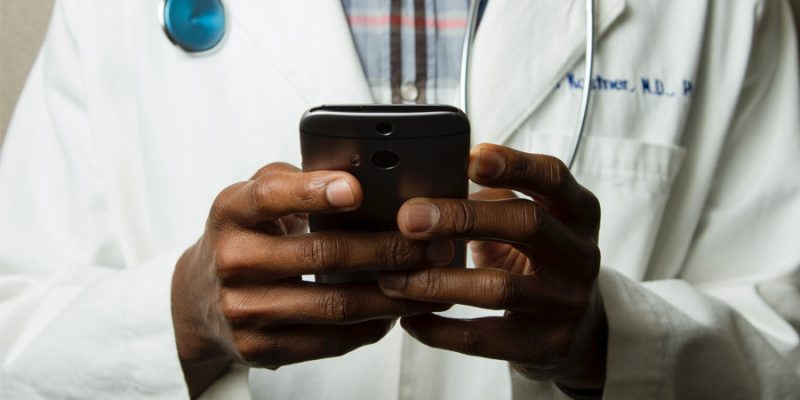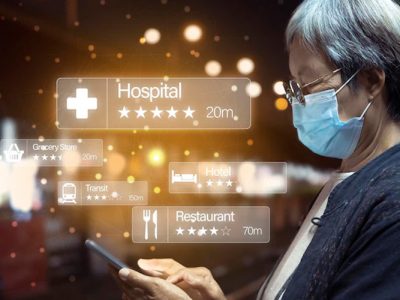
A big profit to patients: NFTs in healthcare with which they can monetize their health data
Whether you understand what they’re or not, probabilities are you’ve heard of non-fungible tokens or NFTs. NFT in healthcare are virtual tokens that constitute ownership of absolutely particular items; saved and traceable in a blockchain, they cannot be modified, replaced, or duplicated. Assets minted as NFTs are offered and traded on virtual marketplaces and might have only one professional owner at any time. From art to actual estate, it appears NFTs are infiltrating nearly every market – and healthcare can be next. In a remark posted in Science in advance this month, a cross-sectional team of students led by bioethicists at Baylor College of Medicine (BCM) proposed that the rising generation may want to permit patients to govern and benefit from their healthcare data. But beyond US$69.3 million worth of NFT artwork and counting on the generation that consumes a good deal of electricity as an entire country, NFT in healthcare constitutes a unique capability in the digital health age: that of patients, rather than healthcare, proudly owning their very own digital healthcare records. With one of these stages of possession, patients may want to leverage its benefit to monetize their records rather than have companies earnings off them, as has been historically the case.
Given the newness of NFTs, their untapped capability in healthcare won’t be known, not to mention what NFTs are and the way they work. This article will stroll you through the fundamentals of NFTs, and how they could, in addition, empower sufferers in the digital health age, in addition to increasing concerns about the technology.
What is an NFT in healthcare?
Crowning it because of the Word of the Year for 2021, dictionary writer Collins defines a non-fungible token as “a unique digital certificate, registered in a blockchain, this is used to report the possession of an asset along with an artwork or a collectible.” Creating or “mining” NFT transactions leverage the blockchain era, corresponding to what cryptocurrencies like Bitcoin are primarily based on. In short, the era is based on a decentralized community of computer systems using superior cryptography to affirm the validity of a transaction. We formerly explored the relevance of blockchain in healthcare and pharma, wherein we highlighted its capacity to stable sensitive healthcare data and lessen counterfeit drugs.
How do healthcare data NFTs work?
Put simply, an NFT includes a unique identity code and link to an asset’s online location. When carried out to clinical records, this may serve as a de-identified, patient-managed reproduction of one’s healthcare information, consisting of the terms and conditions under which the data may be acquired and used. Those operating in the NFT area may even admit the era is nascent at this stage – however for Aimedis, a health tech company that lately released a digital marketplace for healthcare data NFTs, it’s already a reality.
In Aimedis’ DataXChange market, a person’s anonymized, health-related data are minted through the permitted institution – for example, a pharmaceutical company or CRO – that needs to buy it. Patients may be paid in cryptocurrency or tokens for use in the direction of Aimedis’ different healthcare services – however, the company’s CEO Michael Kaldasch says they’re operating to make bills in everyday currency an alternative too.
NFTs potential in healthcare
Say you’ve determined to reserve a direct-to-customer DNA trying out package so that you can have a vitamins plan tailored to your genetic makeup via way of means of healthcare. You additionally understand that the latter would possibly promote your genetic information to third events for study purposes. But you compromise for the carrier besides because it’s the maximum correct manner to get a personalized diet at a pretty affordable price.
However, via way of means of promoting your genetic information and that of others, the company can be making millions that they’ll in no way percentage with you. Moreover, as such sensitive information gets handed along the transaction chain, the danger of mishandling the facts increases.
The future of patient NFT digital data?
NFT generation continues to be locating its feet, and some lots should (and probable may also in no way) be ironed out. Aimedis’ NFT generation is already being hired in-clinic tasks and medical trials, and Nasr says Acer is in active discussions with a major pharma agency approximately packages for the agency’s software.
At the heart of the idea of healthcare data NFTs is the responsibility and patient control; when or if ever the generation will become considerable in health studies and care, the values of the one should remain the priority. “It might be surely great for all events worried to consider how we may want to mutually enjoy the change of personal health information,” Kostick-Quenet says.



















